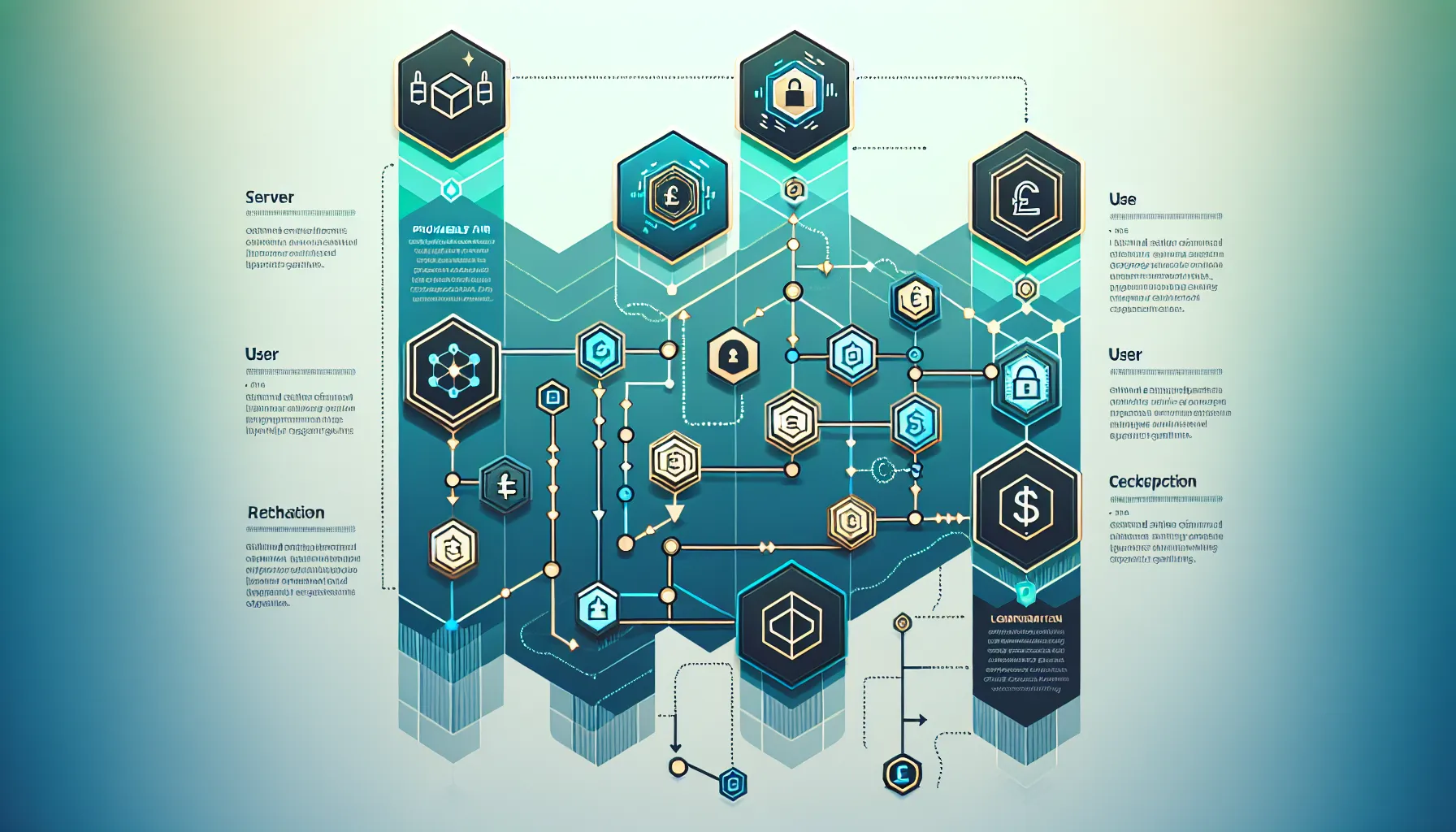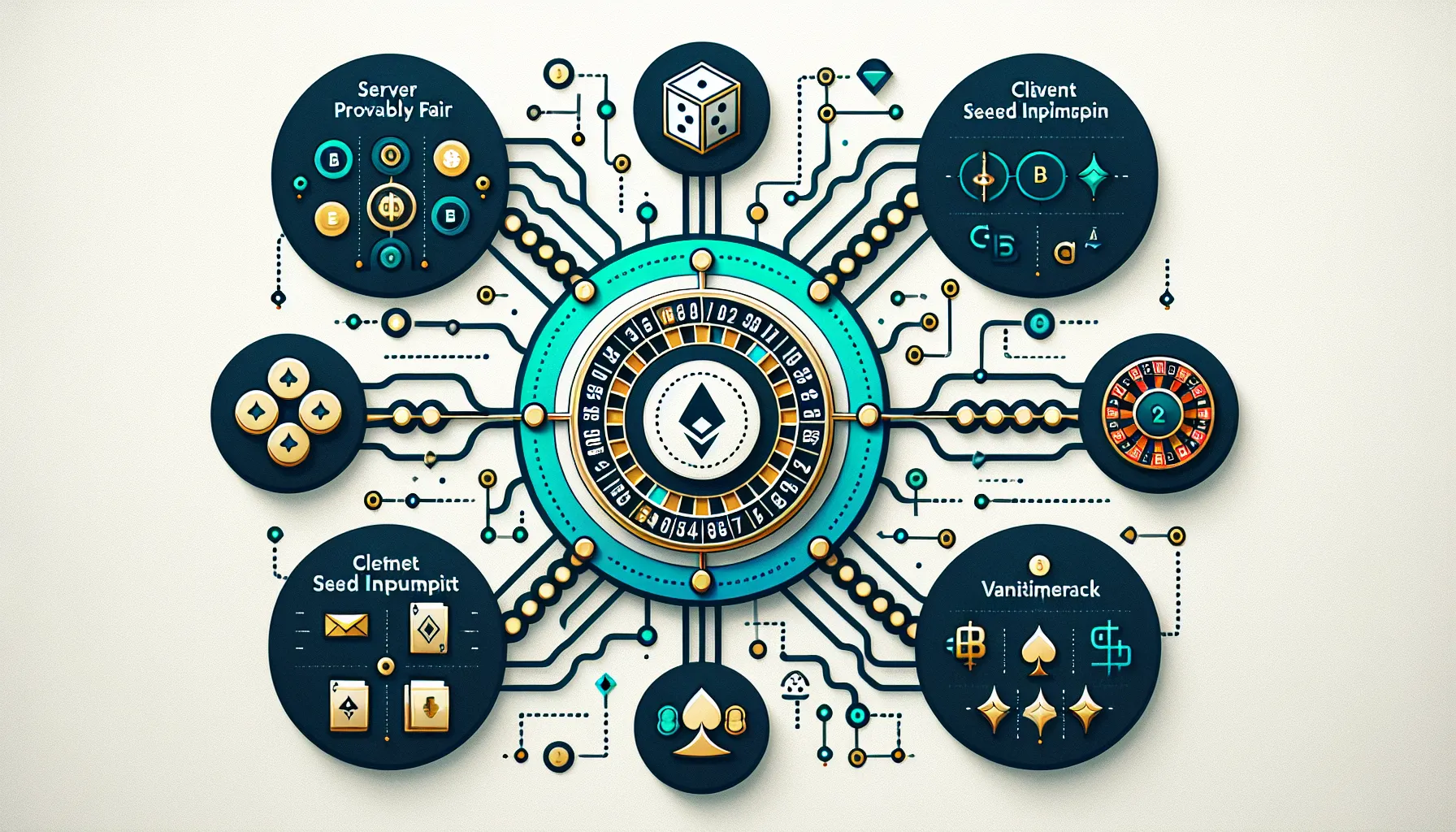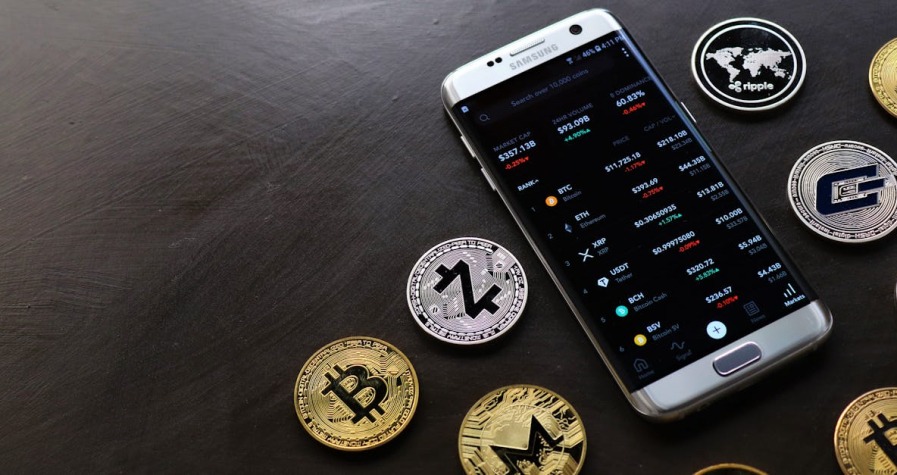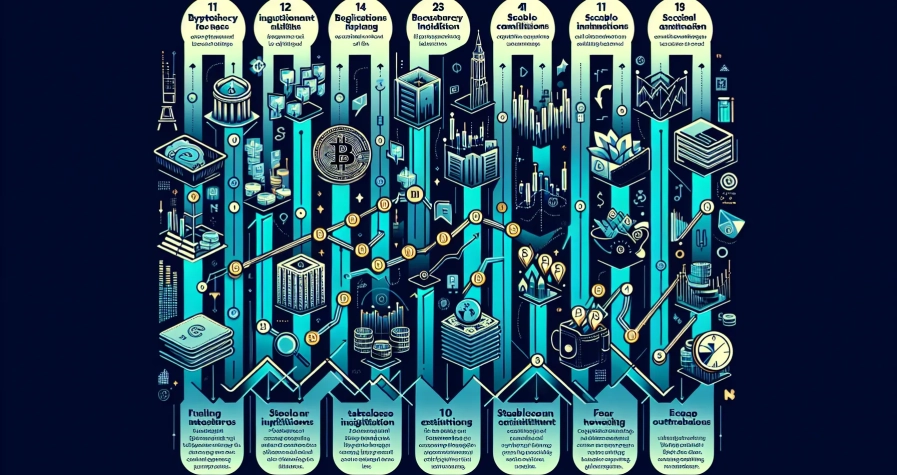The online casino industry has long grappled with a fundamental trust problem. Players deposit money, place bets, and hope the house isn’t rigging the odds behind the scenes. Traditional online casinos operate as black boxes, players must simply trust that the random number generators are truly random and that outcomes aren’t manipulated. But what if there was a way to verify, mathematically and independently, that every spin, roll, or deal was genuinely fair?
Enter blockchain-powered provably fair casino games. By leveraging cryptographic algorithms and transparent blockchain technology, these games allow players to verify the integrity of every single outcome. No more blind faith. No more wondering if that losing streak was legitimate or engineered. This revolution in gambling transparency has spawned a new generation of casino games where fairness isn’t just promised, it’s provable. From dice and roulette to slots and card games, blockchain has transformed how players approach online gambling, shifting power from operators to participants.
Key Takeaways
- Provably fair casino games powered by blockchain use cryptographic algorithms to allow players to independently verify the fairness of every outcome, eliminating the need for blind trust.
- Blockchain technology provides an immutable audit trail and automated smart contracts that ensure transparency, prevent manipulation, and enable instant verification of game results.
- Popular provably fair casino games include dice, roulette, crash games, and card games, each using seed-based randomness that players can mathematically verify.
- Players can verify fairness by checking that the server seed hash matches the revealed seed and that the algorithm correctly produces the displayed outcome using provided verification tools.
- Choosing a reputable blockchain casino requires assessing verification accessibility, on-chain implementation, diverse game selection, proper licensing, and transparent withdrawal processes.
- The shift to provably fair casino games addresses the fundamental trust problem in online gambling by replacing faith-based systems with mathematical proof that outcomes are genuinely random and unmanipulated.
What Makes a Casino Game Provably Fair?

Provably fair gaming represents a fundamental shift from trust-based to verification-based gambling. At its core, a provably fair game uses cryptographic techniques to generate outcomes that both the casino and player can independently verify as unmanipulated.
The mechanism typically works through a three-step process. Before a game round begins, the casino generates a random server seed and creates a cryptographic hash of it. This hash is shown to the player before they place their bet, essentially a sealed envelope containing the casino’s random input. The player then provides their own client seed, often a random string or number. Finally, these seeds combine with a nonce (a sequential number) to generate the game outcome through a cryptographic algorithm.
What makes this revolutionary is transparency. Once the round completes, the casino reveals the original server seed. Players can then use freely available verification tools to check that the revealed seed matches the hash they saw beforehand, and that the combination of server seed, client seed, and nonce genuinely produced the stated outcome. If the casino had tried to manipulate results, the server seed wouldn’t match its hash. If the calculation is wrong, the verification fails.
This isn’t about trusting the casino’s word or hoping a regulatory body checked their software six months ago. It’s mathematical proof that can be verified instantly, independently, and repeatedly. The casino cannot change the outcome after seeing a player’s bet without invalidating the cryptographic proof.
How Blockchain Technology Ensures Transparency
Whilst provably fair algorithms can technically exist without blockchain, distributed ledger technology adds several crucial layers of transparency and security.
Blockchain provides an immutable record of game outcomes, seed hashes, and transactions. Once data is written to the blockchain, it cannot be altered or deleted, even by the casino operator. This creates a permanent audit trail that players can examine at any time. If a dispute arises about a historical game outcome, the blockchain serves as an indisputable record.
Smart contracts take this further by automating game logic and payouts without human intervention. When game rules are encoded into a smart contract deployed on a blockchain like Ethereum or Solana, the casino cannot selectively enforce rules or delay payouts. The contract executes automatically when conditions are met, transferring winnings directly to players’ wallets.
Decentralisation also matters. Some blockchain casino games operate entirely on-chain with no central operator capable of manipulating outcomes. The game logic lives on the blockchain, outcomes are generated through verifiable randomness (often using block hashes or oracle services), and payouts happen automatically. This removes the single point of failure that plagues traditional online casinos.
Transparency extends to the casino’s finances as well. Players can often verify that the casino holds sufficient funds to cover all outstanding bets by examining public wallet addresses. This eliminates concerns about insolvency or withdrawal delays due to liquidity problems.
Top Blockchain-Powered Provably Fair Casino Games
The provably fair revolution has touched virtually every casino game category, though some games have proven more popular and technically suited to blockchain implementation than others.
Provably Fair Dice Games
Dice games were among the first to embrace provably fair mechanics, and they remain incredibly popular in blockchain casinos. The simplicity of dice, predicting whether a roll will be above or below a certain number, makes verification straightforward.
Classic provably fair dice allows players to set their own winning probability by choosing a target number. Roll under 50 for a roughly 50/50 bet, or chase higher multipliers by targeting narrower ranges. Each roll is generated from the seed combination, and players can verify that the outcome genuinely fell within the specified range.
What makes blockchain dice particularly appealing is the instant verification and transparent house edge. Players can see exactly how the 1-2% house advantage works mathematically, rather than relying on opaque random number generator certifications. Many platforms also allow players to change their client seed between rolls, giving them direct influence over the randomness generation.
Blockchain Roulette Variants
Roulette’s transition to provably fair mechanics has produced several innovative variants. Traditional European and American roulette formats now feature full outcome verification, where players can confirm that the ball genuinely landed on the displayed number based on the seed combination.
Some blockchain roulette implementations use hybrid randomness, combining server seeds with future blockchain block hashes that haven’t been generated when bets are placed. Since miners cannot predict or manipulate block hashes, this adds an extra layer of verifiable randomness beyond the casino’s control.
Speed roulette variants have also gained traction, with rounds completing in seconds rather than minutes. The blockchain eliminates physical wheel spin time whilst maintaining verifiable fairness, appealing to players who want rapid-fire betting with mathematical proof behind each spin.
Provably Fair Slots and Crash Games
Slots presented unique challenges for provably fair implementation due to their complexity, but blockchain has enabled transparent versions of these typically opaque games.
Provably fair slots use seed-based reel position generation. The cryptographic algorithm determines where each reel stops based on the seed combination, and players can verify that the displayed symbols match the calculated positions. Some platforms even allow inspection of the entire virtual reel strip, showing the complete symbol distribution and actual return-to-player percentage.
Crash games, but, have become the breakout stars of blockchain casinos. These games feature a multiplier that starts at 1x and climbs, sometimes to 100x or beyond, before randomly “crashing.” Players must cash out before the crash to secure their multiplied winnings. The crash point is generated from seeds and can be verified after each round, proving the casino didn’t manipulate when the crash occurred based on player betting patterns.
The social element of watching the multiplier climb alongside other players, combined with mathematical fairness verification, has made crash games phenomenally popular. Players can develop strategies around volatility and crash point distributions whilst knowing the game is genuinely random.
Card Games with Verifiable Outcomes
Blackjack, baccarat, and video poker have all received provably fair treatments, though card games introduce additional complexity. Rather than generating a single outcome number, the system must produce an entire shuffled deck in a verifiable way.
Provably fair card games typically use the seed combination to generate a shuffle algorithm that determines card order. Players can verify after the hand that the deck was indeed shuffled according to the algorithm and that cards were dealt from the predetermined sequence. Some implementations reveal the entire deck order after each hand, whilst others only reveal cards that would have been dealt to maintain some uncertainty for ongoing games.
Video poker has proven particularly well-suited to provably fair mechanics. Since it’s a single-player game with complete hands, the entire deal-and-draw sequence can be verified without impacting gameplay. Players can confirm that both their initial five cards and the replacement cards came from a genuinely shuffled, unmanipulated deck.
Why Players Prefer Provably Fair Games
The shift toward provably fair blockchain casino games isn’t just a technological novelty, it addresses fundamental concerns that have plagued online gambling since its inception.
Trust elimination sits at the heart of player preference. Traditional online casinos require enormous leaps of faith. Players must trust that regulators properly audited the random number generator, that the casino didn’t modify software after certification, that licensing jurisdictions enforce their rules, and that the operator won’t simply disappear with deposits. Provably fair games remove these trust requirements. The mathematics either checks out or it doesn’t. Players become their own auditors.
Transparency builds confidence in ways that certification badges never could. When players can verify that a game’s return-to-player percentage isn’t just claimed but mathematically provable through seed analysis and outcome distribution, they make more informed decisions. This transparency extends to house edges, where players can see exactly how much theoretical advantage the casino holds rather than accepting opaque “certified fair” claims.
Dispute resolution becomes straightforward with blockchain verification. If a player believes an outcome was unfair, they can provide cryptographic proof. There’s no lengthy investigation or reliance on the casino’s internal logs. The blockchain record and seed verification either support the player’s claim or conclusively demonstrate the outcome was legitimate. This definitiveness benefits honest players and honest casinos alike.
The psychological aspect matters, too. Losing streaks feel different when you can verify they’re legitimately random rather than suspecting manipulation. Players can accept variance as genuine statistical reality rather than questioning whether the casino is “tightening” games or targeting specific accounts. This peace of mind keeps players engaged longer and builds loyalty to platforms that offer verifiable fairness.
Regulatory advantages also emerge. Some jurisdictions view provably fair games more favourably than traditional online casino offerings because the transparency and verifiability address concerns about consumer protection. This has allowed blockchain casinos to operate in certain regions where conventional online gambling faces restrictions.
How to Verify Fairness in Blockchain Casino Games
Understanding that a game is provably fair is one thing: actually verifying it is what transforms the concept from marketing claim to mathematical reality. Fortunately, the verification process is more accessible than it might initially seem.
Before placing a bet, players should note the server seed hash displayed by the casino. This hashed value is the casino’s commitment to a specific random input before knowing the outcome. Most blockchain casinos display this prominently, often with a timer or countdown showing it will be used for the next game round. Taking a screenshot or copying this hash creates an independent record.
Next, players input or modify their client seed. Many platforms auto-generate a random client seed, but savvy players often change this to a personal random string. This ensures they’ve contributed genuine randomness to the outcome generation. Some players use timestamps, favourite phrases, or random keyboard mashing, the specific method matters less than ensuring the seed is unique and unpredictable.
After the game round completes, the casino reveals the unhashed server seed. This is the moment of truth. Players should immediately verify two things: first, that hashing the revealed server seed produces the exact hash shown before the bet: second, that combining the server seed, client seed, and nonce through the game’s algorithm produces the displayed outcome.
Most blockchain casinos provide built-in verification tools that automate this process. Players enter the seeds and nonce, click verify, and receive confirmation that everything matches. But, independent verification tools and scripts are also available, allowing players to check outcomes without relying on the casino’s interface. This independent verification is the ultimate proof, using third-party tools to confirm that the mathematics genuinely supports the claimed outcome.
For blockchain-native games with on-chain outcomes, verification extends to examining the actual blockchain transactions. Players can use block explorers to view the smart contract calls, see the random inputs used, and trace the exact execution of game logic. This provides an additional layer of verification beyond the provably fair algorithm itself.
Players should verify a few outcomes shortly after starting with a new platform, then periodically spot-check to ensure ongoing integrity. Whilst verifying every single bet isn’t necessary, knowing one can verify at any time creates accountability that benefits all players.
Choosing the Right Provably Fair Casino Platform
Not all blockchain casinos are created equal, even amongst those claiming provably fair mechanics. Several factors distinguish genuinely transparent, player-friendly platforms from those merely adopting blockchain buzzwords.
Verification accessibility should be the first consideration. Does the casino make seed hashes clearly visible before bets? Can players easily access and modify their client seeds? Are verification tools built into the platform, and does the casino provide documentation explaining how to verify outcomes independently? Platforms that genuinely embrace provable fairness make verification straightforward, not buried in obscure menus or technical documentation.
Blockchain implementation matters significantly. Some casinos operate fully on-chain with smart contracts handling all game logic, whilst others use blockchain only for payments whilst game outcomes remain on centralised servers. Fully decentralised implementations offer superior transparency and censorship resistance, though they may have slightly slower gameplay due to blockchain confirmation times. Hybrid approaches can work well if the provably fair mechanisms remain robust, but players should understand what’s actually happening on-chain versus off-chain.
Game selection and quality separate leading platforms from mediocre ones. The best blockchain casinos offer diverse provably fair games across multiple categories, dice, roulette, slots, crash games, and card games, each with clear documentation of their fairness algorithms. Variety ensures players can enjoy different game types without sacrificing verifiability.
Licensing and reputation still matter, even in the blockchain space. Whilst provably fair mechanics reduce reliance on regulatory oversight, legitimate licensing from respected jurisdictions (Curaçao, Malta, or Gibraltar, for example) indicates the operator meets baseline standards for financial security and responsible gambling practices. Community reputation, longevity, and transparent operator information all contribute to platform trustworthiness.
Withdrawal processes and cryptocurrency support should align with player preferences. The best platforms support multiple cryptocurrencies, process withdrawals quickly (often within minutes for crypto), and maintain transparent hot wallet balances that players can verify on-chain. Complicated withdrawal requirements or delayed payments undermine the transparency benefits that blockchain casinos supposedly offer.
User experience shouldn’t be sacrificed for blockchain features. Leading platforms combine provable fairness with intuitive interfaces, responsive customer support, and engaging gameplay. The mathematics should work flawlessly in the background whilst players enjoy smooth, entertaining gaming experiences.
Conclusion
Blockchain technology has fundamentally transformed online casino gaming by making fairness verifiable rather than assumed. Provably fair games powered by cryptographic algorithms and transparent distributed ledgers give players unprecedented ability to confirm that outcomes are genuinely random and unmanipulated. From dice and roulette to innovative crash games and blockchain-native card games, virtually every casino category now offers verifiable fairness options.
This shift represents more than technical innovation, it addresses the core trust deficit that has long undermined online gambling. Players no longer need to hope that a distant regulator properly audited software or that a casino operator is honest. The mathematics either proves fairness or it doesn’t, placing verification power directly in players’ hands.
As blockchain technology matures and more operators embrace genuine transparency, provably fair gaming will likely become the standard rather than the exception. Players who experience the confidence that comes from mathematical verification rarely return to traditional trust-based platforms. The future of online casino gaming isn’t just digital, it’s verifiable, transparent, and powered by blockchain technology that finally delivers on the promise of fair play.
Frequently Asked Questions
What makes blockchain casino games provably fair?
Provably fair games use cryptographic algorithms combining server seeds, client seeds, and nonces to generate outcomes. Players can independently verify that results weren’t manipulated by checking that the revealed server seed matches its pre-bet hash and produces the displayed outcome mathematically.
How do I verify fairness in a blockchain casino game?
Note the server seed hash before betting, then after the round, verify that the revealed server seed matches this hash and that combining it with your client seed produces the claimed outcome. Most platforms provide built-in verification tools for this process.
Which provably fair casino games are most popular?
Dice games and crash games lead in popularity due to their simplicity and instant verification. Provably fair roulette, slots, and card games like blackjack and video poker also attract significant player interest with transparent, blockchain-powered outcomes.
Can blockchain casinos manipulate provably fair game outcomes?
No, because the server seed hash is committed before bets are placed. If a casino altered outcomes after seeing your bet, the revealed seed wouldn’t match its hash, and verification would fail, providing mathematical proof of manipulation.
Are provably fair casinos legal and regulated?
Many provably fair blockchain casinos hold licences from jurisdictions like Curaçao, Malta, or Gibraltar. Some regulators view them favourably because cryptographic verification addresses consumer protection concerns, though legal status varies by location.
What is the house edge in provably fair blockchain games?
House edges typically range from 1–2% in provably fair games like dice and are fully transparent. Unlike traditional casinos, players can mathematically verify the exact house advantage through seed analysis and outcome distributions rather than trusting certification claims.







